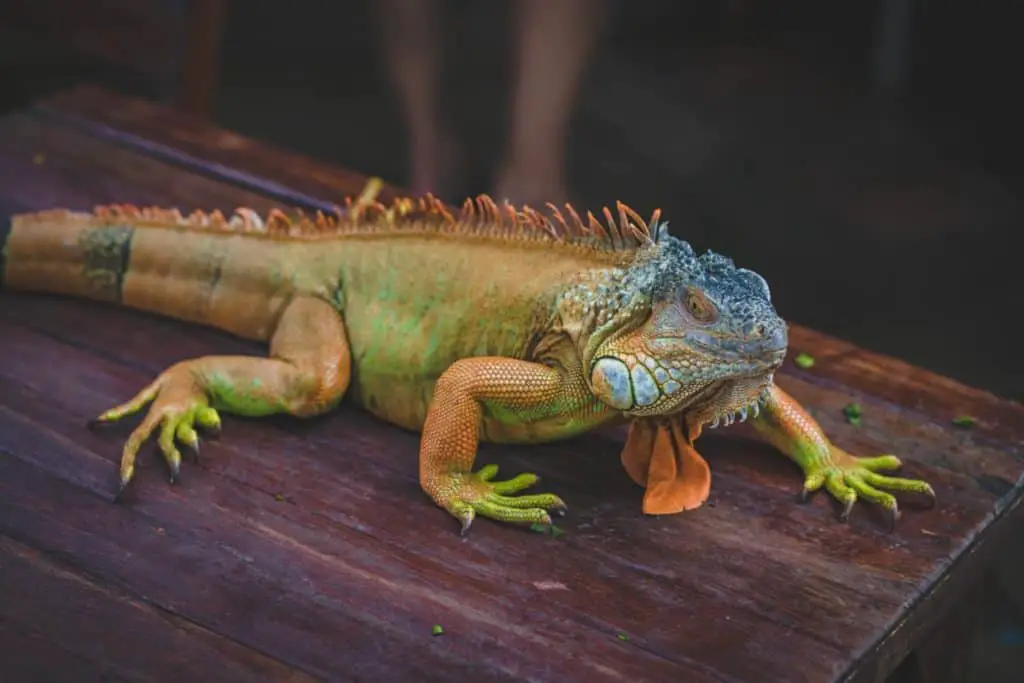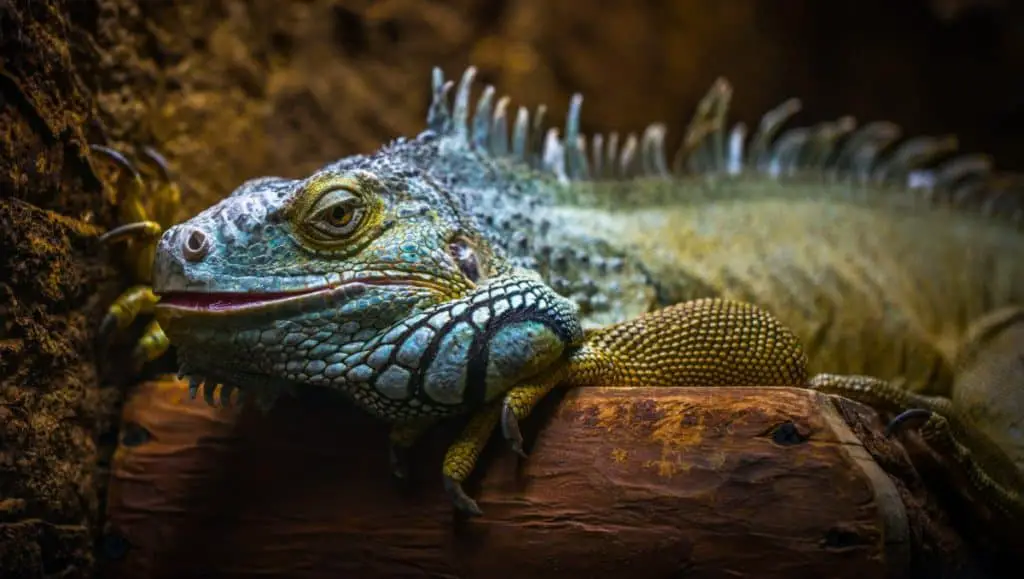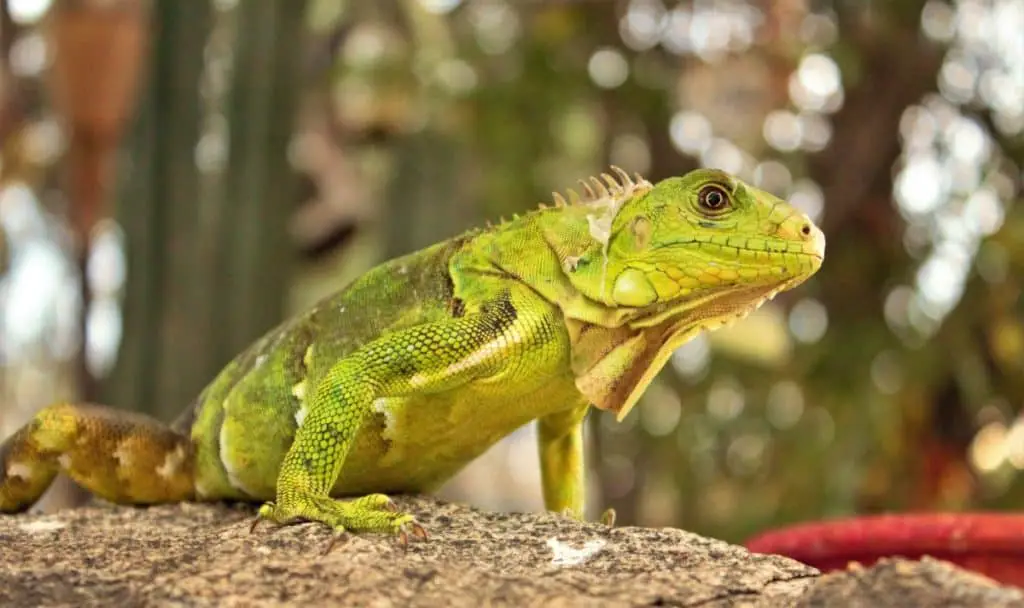
If you want to find out if lizard meat can be eaten then you’ve come to the right article.
As, in this article, I’ll share the answer to this question with you, and I’ll also cover a few more closely related questions to extend your knowledge even more.
I hope you learn a lot from this article!
Can you eat lizards?
Lizards are usually safe to eat when they are properly prepared and cooked.
Lizards are a large group of over 7,000 species of reptiles, and they are found on every continent.
In many areas of the world, lizard meat is considered a delicacy.
Some of the most common lizards that figure into world cuisine include iguanas, geckos, anole, skinks, and monitor lizards.
Can you eat monitor lizards?
Monitor lizards are large, carnivorous lizards that are native to Africa and Asia.
They are invasive in many countries, including the United States.
In parts of the Philippines, the meat and eggs of the monitor lizard, or bayawak, as it is known, are a delicacy.
Similarly, in Australia, where they are referred to as goanna, the tail, in particular, is highly favored.
Other areas where monitor lizards are eaten include South and West Africa, India, Thailand, and Nepal.
Can you eat anole lizards?
The green anole is a lizard native to the southeastern US, whereas the brown anole is native to the Caribbean and has become invasive within the United States.
Like most other lizards, the anole is safe to eat when properly prepared and cooked.
Hunting and eating brown anole could be a helpful way to combat their spread throughout the southeast.
Can you eat blue tongue lizards?
Blue tongue lizards are native to Australia and they are the largest of the skinks.
Like many lizards, blue tongue skinks could be eaten when properly prepared and cooked, but it is illegal to do so.
They are a federally protected species in Australia.
Can you eat tegu lizards?
Tegu lizards are a grouping of about eighty different species, all of which are native to South and Central America.
As a result of the pet lizard trade, the largest of these, the Argentine black and white tegu, has become invasive to Florida, Georgia, and other areas of the southeast.
In South America, rural and indigenous people often eat the meat of large tegu.
Can you eat house lizards?
When properly cleaned and cooked, you can eat a house lizard.
It is, however, important to keep in mind as well that the meat of the house lizard cannot have passed its expiration date, otherwise eating the house lizard meat can result in health problems.
Can you eat lizards raw?
While many lizards are edible when cooked, they should not be consumed raw.
Like the meat of most animals, raw lizard meat naturally contains bacteria and parasites that are harmful to your health.
Such organisms are killed during the cooking process.
What does lizard meat taste like?
In most cases, lizard meat is mildly flavored and many people think it tastes quite a bit like chicken.
Indeed, iguanas are sometimes referred to as “the chicken of the trees” because of the similarity of their meat to that of chickens.
However, iguana meat is, in fact, a bit different than chicken meat: it is slightly sweeter, leaner, and contains significantly more protein.

Does lizard meat taste good?
Most lizard meat is mildly flavored and sometimes slightly sweet.
In this sense, it is very similar to chicken meat, and, therefore, many people from a variety of cultures enjoy the flavor.
What happens if you eat lizards?
When properly prepared and cooked, you should not experience negative health effects from eating lizard meat.
As with chicken and most other meat, it is important to properly wash and thoroughly cook lizard meat to prevent contracting bacterial or parasitic infections.
Is it safe to eat lizard meat?
It is safe to eat lizard meat that has been properly prepared and thoroughly cooked.
Like the meat of most other animals, raw lizard meat contains bacteria and parasites, but they are killed during the cooking process, making the meat safe to consume.
You should, however, never eat a lizard or any other animal that appears sick.
The safest type of lizard meat is that which has been hygienically butchered and has not passed its expiration date.
Can you eat lizards in Florida?
Several invasive lizard species in Florida are not protected by state or federal law, such as the brown anole and the Argentine black and white tegu.
So, these just mentioned species can also be eaten in Florida but you should keep in mind that most lizard species are protected by the state of federal law which means that hunting and consuming most other lizard species can result in expensive fines.
Is it illegal to eat lizard meat?
Some species of lizards are protected by state or federal law.
It is illegal to disturb, hunt, capture, or eat a protected species.
Many other species, however, are not protected.
State laws typically govern when a species can be hunted.
In the case of invasive species, it is oftentimes legal to humanely capture and eat them.
What are the risks of eating lizard meat?
As with all meat, the risks associated with eating lizard meat include contracting bacterial infections such as salmonellosis, parasites such as tapeworms, or parasitic infections such as trichinosis.
Such diseases are typically contracted when eating raw, undercooked, or expired lizard meat.
Any toxins ingested by a lizard can also be transferred when its meat is consumed.
You should, therefore, also never eat a lizard (or any other animal) that appears to be sick or poisoned.
What are the side effects of eating lizards?
Generally speaking, there are no bad side effects that can appear from eating lizard meat that has been properly prepared and thoroughly cooked.
However, raw lizard meat contains microorganisms that can cause bacterial infections such as salmonellosis, or parasitic infections such as trichinosis.
Food-borne illnesses of these sorts result in severe gastrointestinal issues including diarrhea and vomiting.
Other symptoms include nausea, fatigue, and fever.
What are the side effects of eating monitor lizards?
When washed, properly prepared, and thoroughly cooked, there are no unique potential side effects from eating monitor lizards.
Indeed, they are considered a delicacy and are often consumed in a variety of countries.
Of course, eating raw monitor lizard meat or eggs can cause bacterial or parasitic infections.
Two common foodborne illnesses are salmonella and trichinosis, each of which can result in severe diarrhea, vomiting, fatigue, and fever.
Are lizards poisonous to eat?
Lizard meat is not poisonous, and when it is properly cooked it is perfectly edible.
However, like chickens and many other animals, most lizards have the bacteria that causes salmonella poisoning (a type of food poisoning) on their skin, so it is important to carefully wash and prepare lizard meat and avoid cross-contamination.

Do Chinese eat lizards?
Chinese people do occasionally eat lizard meat.
Skewered flying lizards, for example, are found in some Chinese food markets.
Which country eats lizards?
Lizard meat is present in many cultures’ cuisines and they are eaten by people all around the world.
For example, tegu lizards are eaten by South and Central Americans, and people in the Philippines and other parts of Southeast Asia, Australia, and parts of Africa eat monitor lizards.
Other types of lizards are eaten by Chinese and Arabic people.
Can you eat lizard tails?
Lizard tails are not only edible, but they are, in some cases, the most favored part of a lizard.
For example, in Australia, there are both aboriginal and French styles of preparing the tail of monitor lizards.
Can you eat lizard eggs?
Some types of lizard eggs, for example, those of the monitor lizard, are used within certain Southeast Asian cuisines.
However, concerns over bacterial and parasitic infections lead most people to avoid eating them.
